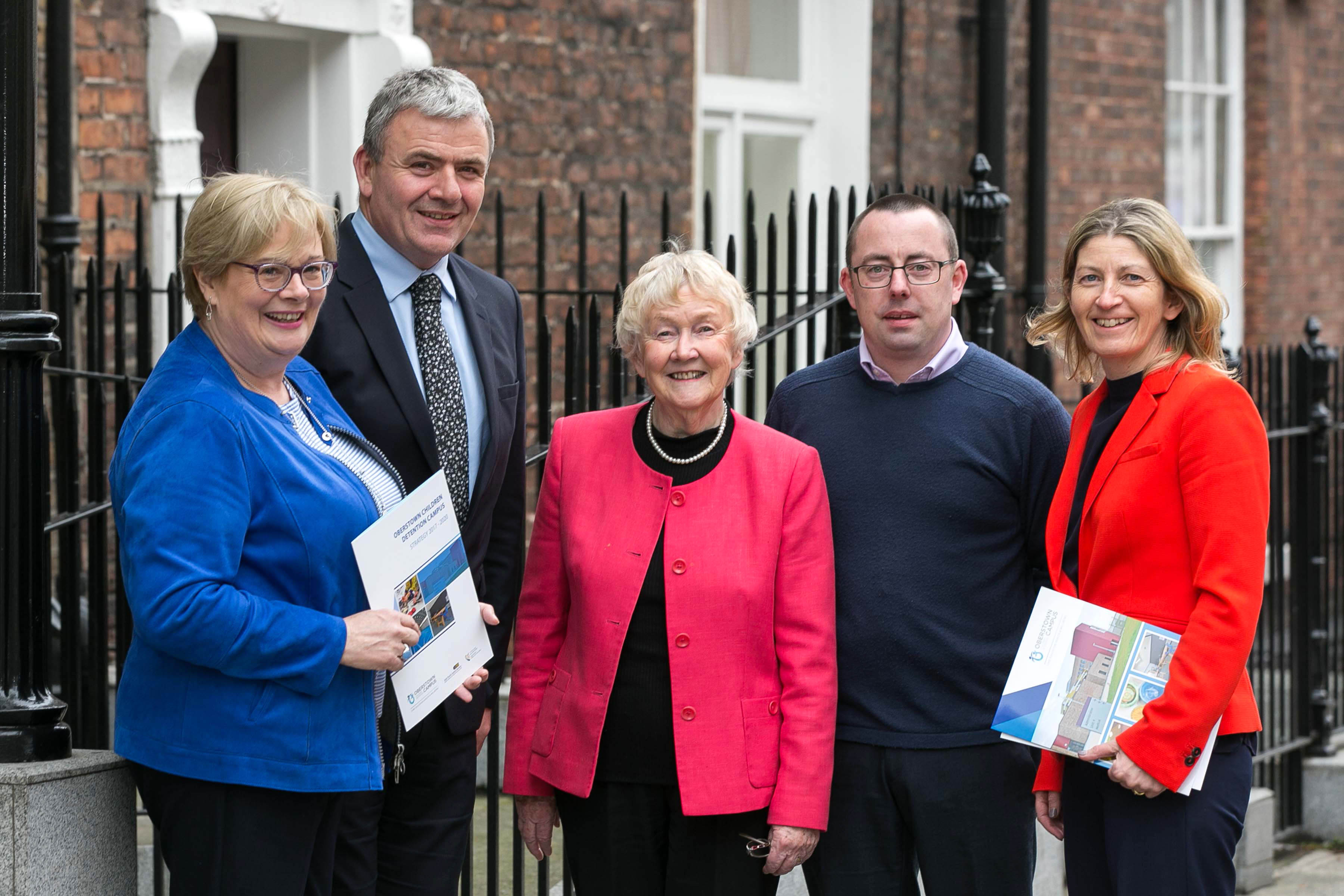Education – Closing the Gap for Children in Detention
Oberstown Children Detention Campus on April 16 hosted a seminar in Buswells Hotel, Dublin 2, aimed at exploring the issues children in detention face when pursuing their education. The seminar addressed some of the major challenges facing education in the youth justice system, particularly for young people in Oberstown.
Analysis carried out by Oberstown Children Detention Campus in 2018 demonstrates the challenge of ensuring that the education system caters to young people in conflict with the law. Data shows that just under half of young people arriving in Oberstown were not participating in formal education prior to their detention. Furthermore, a significant proportion of those young people had additional learning needs or addiction issues that were not being addressed in the community.

The findings of the research undertaken with the young people who enter the youth justice system in Oberstown include:
49% of young people who were remanded or committed to Oberstown Children Detention Campus in the first quarter of 2018 were not engaging in education prior to their arrival in Oberstown
20% of these young people had a diagnosed learning disability
Many had a variety of additional complex needs including ADHD, mental health difficulties and substance misuse concerns, that were being unmet in the community
Speakers at the event include Professor Aine Hyland, Emeritus Professor of Education, University College Cork, Senator Colette Kelleher, Dr Fionnuala Anderson, Director of Further Education and Training, DDLETB and Shane Griffin, advocate for young people and careleavers.
Chair of Oberstown Board of Management Professor Ursula Kilkelly said: “Half of the young people who come to Oberstown are already out of school and yet we know that education is both a preventive and a protective factor against offending. Engaging young people in education is vital to their futures and this is why education is a pillar of Oberstown’s model of care. Conscious that this issue requires national attention and consideration from a variety of perspectives, including young people themselves, this event will seek to raise awareness about the educational disadvantage experienced by young people who enter the justice system and to generate consensus about how this issue can be addressed.”
Professor Aine Hyland, Emeritus Professor of Education, University College Cork said:
“While statistics show that there are more young people in full-time education in Ireland today than ever before, there are still an unacceptably high number of early school leavers and of young people whom the education system has failed. A disproportionate number of these, especially young males, are at risk of long-term unemployment and of getting involved in crime and ending up in detention. Early intervention and investment in integrated education and other services can dramatically improve
the quality of life for these young people and their families and avoid major state expenditure in later years.”
Senator Colette Kelleher added: “Poor educational experiences have a life-long impact on our children. That impact is felt greatest in marginalised communities. We need to address the structural and systematic problems with the school system that has many of our children in alternative learning environments. We need to give every child an equal opportunity to lead a constructive life and achieve all that they can.”
Dr Fionnuala Anderson, Director of Further Education and Training, DDLETB said: “Children in detention need safe and stimulating education environments and space which give them the opportunity to achieve their full potential. We must take the background and experience of learners prior to their arrival in Oberstown into account. That experience may include frequent periods of absenteeism during previous schooling, a poor experience of the transition from primary to post-primary schooling, significant difficulties in the areas of basic literacy and numeracy and behavioural and emotional problems. We must ensure that the education experience addresses these specific needs.”
Shane Griffin, advocate for young people and careleavers: “A nurturing, loving and caring childhood in a supportive home environment facilitates personal growth and development. Formal education in a school setting is one of the many elements of the wider societal responsibilities and roles in this development. However, many children on the margins, living among abuse, neglect and poverty where survival is often to the fore, are failed. Is our school system in its current state failing these vulnerable children? Are we, as a society, failing these vulnerable children?”
ENDS

